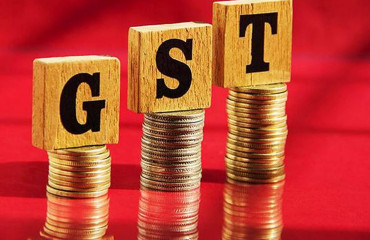
Auto component makers are licking their lips at the ascent of hybrids, spying a new growth engine at a time when electric vehicle (EV) sales have not measured up. Hybrid sales are rising overseas, Indian automakers are preparing a range of hybrid launches, and there is growing pressure to tax hybrids on par with electrics—all promising tailwinds for the segment.
Auto component makers are licking their lips at the ascent of hybrids, spying a new growth engine at a time when electric vehicle (EV) sales have not measured up. Hybrid sales are rising overseas, Indian automakers are preparing a range of hybrid launches, and there is growing pressure to tax hybrids on par with electrics—all promising tailwinds for the segment.
Hybrids pack a conventional engine as well as an electric motor, with their complexity offering wider business opportunities for part makers. Industry leaders such as Sona Comstar, Bosch Ltd and Tenneco Clean Air said the rise of hybrids should offset the EV stagnation in developed markets.
Component makers are optimistic, with Sona Comstar chief executive officer (CEO) Vivek Vikram Singh noting at an analysts' call that hybrids offer the highest value content per vehicle, incorporating both starter and traction motors, unlike less profitable internal combustion engine (ICE) vehicles. The transition is a "dream come true" for Tenneco Clean Air India, CEO Arvind Chandrasekharan told Mint, as the complexity of housing two powertrains in a small space requires more sophisticated components. Tenneco helps resolve the sound transition in shifting from combustion engine to electric motor.
Bosch Ltd. is also ready to capitalize, with managing director (MD) and chief technology officer (CTO) Guruprasad Mudlapur confirming the company is actively engaged in discussions with local automakers. "We have a lot of technology for the hybrid segment. We offer this to several OEMs (original equipment manufacturers) globally. And we are very open to doing that in the Indian market as well," Mudlapur said at an analyst call.
Crucial time
The surge in business opportunities in India as well as Asian and European markets comes at a crucial time for the industry, which faces headwinds from a 50% tariff on exports to the US, one of its largest international markets. North America accounts for about a third of component exports.
Harshvardhan Sharma, group head of automotive tech and innovation, NRI Consulting & Solutions India, a management consulting firm, said hybrid vehicles present an excellent business opportunity for auto part makers as sales are expected to increase rapidly in the next few years, and because hybrids offer more scope for value addition.
"Hybrid powertrains incorporate electric motors, power-electronics modules, battery packs and more sophisticated transmission architectures, offering higher-value content compared with a standard ICE vehicle," Sharma said.
Companies are increasingly looking to build a supply base for their hybrid models for domestic use and exports, which present an interesting opportunity for component makers. "In the near to medium term, hybrids offer arguably the most compelling content growth vector for India's auto-component sector," Sharma said.
Hybrid parade
Hyundai Motor India Ltd is planning to launch eight hybrids by fiscal year 2030 (FY30). The country's second largest carmaker estimates that hybrids will comprise 14% of India's total car sales by then, up from 2% in FY25. This will be on par with EVs, which are expected to rise touch 14% of car sales in FY30 from 3% in FY25. In FY25, hybrid vehicle sales rose 18% to 105,000 units.
Some of the popular hybrids in India include the Toyota Urban Cruiser, Maruti Grand Vitara and Honda City hybrid.
Globally too, many carmakers are shifting tactics, offering more hybrid vehicles owing to a slower-than-expected increase in EV adoption. Automakers like Volkswagen, Toyota and BYD are strategically pivoting toward hybrid vehicles in the US and Europe, citing increased consumer interest while they continue to assess long-term natural demand for fully electric vehicles. The surge in investment and focus is exemplified by Toyota's $912 million hybrid capacity expansion in the US.
Besides, the Associated Chambers of Commerce and Industry of India has called for taxing hybrids at 5%—the same as EVs—a demand, if conceded, could substantially drive up their sales.
India's passenger vehicle market was worth $42.8 billion in FY24, with 4.2 million units sold, and is expected to grow at a compound annual rate of 10% to $93 billion by 2032, according to a report by Markets and Data, a market intelligence and business consulting services company. These projections are in line with how global markets are expected to move. According to a Goldman Sachs report released in September, hybrid vehicles are expected to comprise 26% of the global car market by 2030, while EVs will make up 25%.
